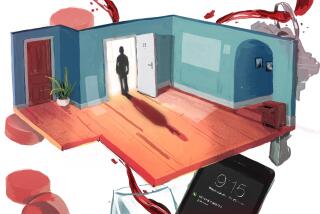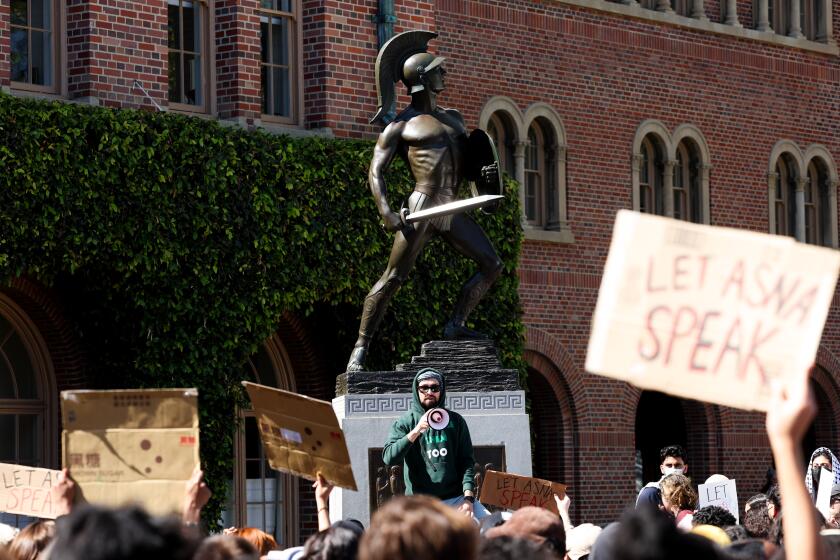Uncoupling the hookup culture
It appears that more young people are starting — finally — to question the “hookup” mentality that has become so common on many college campuses.
Harvard sophomore Lisa Mogilanski, writing in USA Today this month, put it this way: “Hookup culture is an unnavigable mush of vague intentions and desires…. We can try to dress it up as being freeing or equalizing the genders, but I fear it only leaves us equally impoverished.”
Voices like Mogilanski’s are still the exception, however, and even many of those who see hookup culture as a problem stop short of embracing better alternatives.
Casual sex on college campuses today, which often grows out of binge drinking, leads to sexually transmitted diseases, unwanted pregnancies and low self-esteem. It removes the romance, love and deep caring from relationships between men and women.
Yet many American colleges and universities seem to be at least tacitly condoning the culture.
While accompanying one of my children on a college tour several years ago, another high schooler asked the student guide about being able to drink and “have fun with my girlfriend” in the dorm rooms. The guide proceeded to tell him not to worry; no one enforced those rules.
Boston University religion professor Donna Freitas, in her new book “The End of Sex,” suggests that the culture of casual hookups is leading to an unhappy, unfulfilled and confused generation. She cites overwhelming research showing predominantly negative experiences that result from hooking up because, for one thing, “it is purely physical and emotionally vacant.”
But still, she denigrates abstinence education as “extreme to the point that students cannot imagine living it, nor do they wish to.”
Columnist Emma Teitel, writing in Maclean’s, suggests that “if you have empty, meaningless sex throughout college, you’ll become an emotional cripple, contract gonorrhea and, most likely, vomit.” But then she adds: “These are lessons learned through experience, not indoctrination.”
That seems nonsensical. I didn’t have to learn that, say, heroin was bad for me through experience. I didn’t learn it through “indoctrination” either. Young people who are given sound information can make rational decisions without having to engage in risky and detrimental behavior.
In a 2012 report titled “Strategies for Reducing Binge Drinking and a ‘Hook-Up’ Culture on Campus,” Loyola Marymount University professor Christopher Kaczor found that “the ramifications of unhealthy behaviors in both drinking and sex go beyond the physical, psychological and social damage to the individuals partaking in the activities.” This behavior “inhibits ethical development through the focus on private indulgence of using other people for pleasure, rather than on loving, committed relationships.”
That emotional state affects academic performance, and as Kaczor notes, can ultimately diminish “the institution’s ability to attract and retain excellent students and faculty.”
It’s clearly in the interests of colleges and the students they serve to change the culture. How? A college student spends no more than six hours a day, four to five days a week, in the classroom. Any attempt to reduce the incidence of hooking up should be aimed at that time and those activities.
One particular area of focus should be on freshmen when they first arrive at school. As Kaczor reports, “The first six weeks of the college experience are extremely important in establishing a student’s habits and identity.” It is during this time that “habits take root and patterns of behavior become established.” First-year students are experimenting with a new level of freedom, and a desire to fit in with their peers often turns them into followers during this period, engaging in behaviors that produce unwanted consequences.
Curbing binge drinking should be another focus. Franciscan University of Steubenville professor Anne Hendershott and assistant Nicholas Dunn survey the many links between drunkenness and the hookup culture in their study, “The ‘Hook-Up’ Culture on Catholic Campuses: A Review of the Literature.” If the former can be mitigated, they conclude, the latter would be reduced.
For many families, education is among the largest investments they will make, and they should make those investments wisely. Parents should look beyond the academic credentials of the university before shelling out cash, asking tough questions of university administrators. Do residential assistants look the other way when drinking and visitation violations occur? Does the administration publicly condone such activity? What efforts do they make to educate students about responsible decision-making?
Universities that openly condone or turn a blind eye to casual sex and alcohol abuse should be called to account. College is a wonderful place for young people to develop deep and lasting relationships based on mutual respect and love. But that won’t happen if they are simply focused on the next hookup.
Bob Laird is director of programs at the Cardinal Newman Society.
More to Read
A cure for the common opinion
Get thought-provoking perspectives with our weekly newsletter.
You may occasionally receive promotional content from the Los Angeles Times.






